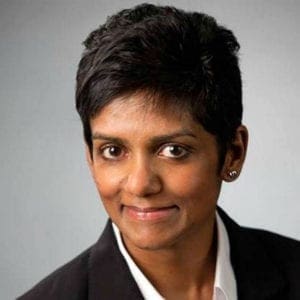 The decision by the Australian Competition and Consumer Commission (ACCC) to enshrine rate parity between hotels and Online Travel Agencies (OTAs) has created a new impetus for the hotel sector to reclaim their guests through innovative marketing strategies.
The decision by the Australian Competition and Consumer Commission (ACCC) to enshrine rate parity between hotels and Online Travel Agencies (OTAs) has created a new impetus for the hotel sector to reclaim their guests through innovative marketing strategies.
The agreement – which was signed off in early September – allows hotels to offer lower rates than they provide OTAs for phone and over-the-counter bookings, but they have to extend ‘rate parity’ to OTAs for online bookings, unless it is to a ’closed’ user group, such as a hotel’s loyalty club.
The reality, of course, is that the overwhelming majority of bookings these days are online, and the millennial generation, in particular, prefer the idea of booking through aggregated sites rather than individual hotel sites.
While France legislated to outlaw rate parity, and Germany is looking to follow suit, the American hotel giants decided that the only way to stop the erosion of distribution market share was to challenge the OTAs head on.
Marriott launched its “It pays to book direct” campaign and Hilton followed with “Stop Clicking Around”, with both groups promising their loyalty members “lowest rate”, plus extra benefits such as wi-fi access and upgrades. The fight-back has since been joined by IHG.
The chains haven’t revealed how much the campaigns have grown direct business, but market leader in Australia and New Zealand, AccorHotels, has claimed major effectiveness in growing their direct bookings through a massive increase in investment in their loyalty programs, However, they are yet to follow Hilton, Marriott and IHG and guarantee ‘lowest price’ for members.
The moves are a direct challenge to the power of the OTAs, dominated by the global duopoly based of Expedia Inc. (Expedia, Hotels.com) and The Priceline Group (Booking.com), who have grown to a combined market capitalisation of over US$85 billion.
Wotif’s 10% commissions are a distant memory for Australian hotels
Australian hoteliers were largely insulated against the power of the big two when Wotif operated as a stand-alone OTA offering flat 10% commission levels, compared to the global groups’ commission rates of over 15%.
For many independent Australian hotels, or small chains, selling their inventory via Wotif meant they didn’t need to hire sales staff and could concentrate instead on promotions and marketing. Then Wotif raised the commission to 11%, before they were swallowed up by Expedia Inc. and commission levels then headed further north quite rapidly.
Unfortunately for hotels, the ‘all in one’ offer of booking sites such as Expedia and Booking.com have gained popularity with travellers, and with global OTAs spending millions in advertising and web development, many travellers head straight to aggregated sites rather than brand sites.
For every action, there’s a consequence
Expedia Inc.’s Dara Khosrowshahi made it clear at a recent investment conference that while Marriott and Hilton were free to make their own choices, the consequences were that they would most likely lose their bargaining position with Expedia Inc. if they don’t provide best prices and availability. They would move to a lower position in Expedia’s sort order and rival brands would gain share at their expense if they didn’t have the same engagement on Expedia Inc. sites.
Hotel management companies are caught in the crossfire. While they certainly need Expedia Inc. and The Priceline Group, attracting a significant percentage of direct bookings is fundamental to their value add to owners. It is also fundamental to maintaining a healthy bottom line. An increase from 10% to 15%-18% for cost of bookings may be less problematic in an era of strong demand, but when the tide changes, the extra costs are likely to impact the bottom line if rates can’t be shifted.
Not every hotel can offer ‘lowest rate’ guarantees, but they are able to target their customer base and encourage more direct bookings. The question is, does the cost justify the outcome?
Inevitably, controlling your own customer base is a significant advantage, because the tourism and hospitality sector is notoriously subject to changing conditions.
During the crippling pilots’ dispute in the early 1990s, hotels that had outsourced most of their inventory to third parties – in those days, wholesalers and travel agents – were left with empty hotels, but managers who had built strong local connections and direct channels kept their heads above water.
OTAs here to stay, but hotels can gain greater control of their own destiny
OTAs are here to stay and are likely to grow even further, irrespective of the fightback being launched by major hotel groups.
Hotels need to work with OTAs to keep commission levels under control and maximise productivity through guaranteed performance levels.
More importantly, once an OTA delivers a traveller to a hotel, then it is up to the hotel’s team to win over the guest’s loyalty. From the moment the guest arrives, the hotel needs to be focussed on enticing the guest to book direct in the future, knowing they will be treated as a VIP, and will get the best possible rate.
The ACCC agreement with hotels allows a hotel to offer a more competitive rate over the phone (or via email), as well as provide special extras. If they join the loyalty club, then the hotel can offer exclusive rates direct and given that the cost of a direct sale is far less than via an OTA, there is considerable incentive to win them over to direct bookings.
There are plenty of advantages for the guests as well, which hotels need to highlight:
- Bookings can be made fully refundable till a set period before the stay (most OTAs do not allow refunds)
- The benefits of loyalty membership (whether it be points, upgrades, free wi-fi)
- Special welcome such as fast check-in or extended check-out
- Recognition
However, one of the major reasons why the OTAs have gained so much ground is the ease of use of their websites.
According to a recent study from SalesCycle2, 81% of people navigating hotel websites abandon the booking engine without a transaction because they experience inferior functionality or cheaper rates on third-party sites. Hotels need to invest in ensuring their booking engine is a simple process and many have taken active steps to achieve this.
Hotels need to be able to advise owners of the true cost of distribution
Is it better to have a whole sales structure or simply open up the online channels and pay OTAs extra to get a higher level of exposure? At the 2016 WIT Hospitality conference in Singapore, corporate director of revenue management for Four Seasons Hotels & Resorts, Puneet Mahindroo, said that it was important for hotels to balance their distribution channels.
“An Apple product has parts made by Samsung, bits made in Taiwan and China, that’s the kind of world we live in, so hotels have to find partnerships and collaborators that make the most sense for us.” He said hotels had to work out the true cost of distribution, channel by channel, arguing that most hotels hadn’t “really done the math” and only with such clarity can hotels then figure out what’s the most effective digital strategy.
Trip Advisor – a potential saviour to OTA dominance?
The other behemoth in the travel industry, Trip Advisor, could provide an alternative to the relentless march of the OTAs through its Instant Booking function, which allows visitors to book hotels they find on the site through the hotel group’s own branded sites.
However, Trip Advisor has also opened up Instant Booking to OTAs such as Booking.com, Getaroom and their own Tingo site, and a series of searches in a recent Skift3 review showed that on many occasions the bookings were directed through the third-party sites rather than direct to the hotel brand sites.
Should hoteliers give up the online space and stick to being hoteliers?
Expedia Inc.’s vice president Asia Pacific, Mieke De Schepper, declared recently at an industry conference: “Hoteliers should focus on being hoteliers and not be distributors.”
She argued that Expedia invests millions on customer acquisition and $750 million on technology last year, so hoteliers should “make use of our reach and expertise to give you a diverse customer base”.
It has to be remembered that the hotel industry effectively created the OTAs by offering their rooms as “distressed inventory” after the crash of the early 90s. The ACCC decision has confirmed their place in the Australian online environment, so it is going to require a bolder, more creative approach to marketing by hoteliers if they are to fulfil their ambition of dissuading travellers from “clicking around”.
About the author

Troy Craig is the Managing Director – Strategic Advisory, Asia Pacific for JLL Hotels & Hospitality Group. Through a career spanning over two decades, Troy has established himself as a leading hospitality specialist of the commercial property industry. Troy assumed responsibility for the Asia Pacific Hotels & Hospitality Strategic Advisory business in 2014, following 12 years leading the Australasian business, overseeing an extensive and diverse team of specialist advisors. Troy has carried out numerous valuation, consultancy and feasibility studies for many of the region’s leading hotels.















